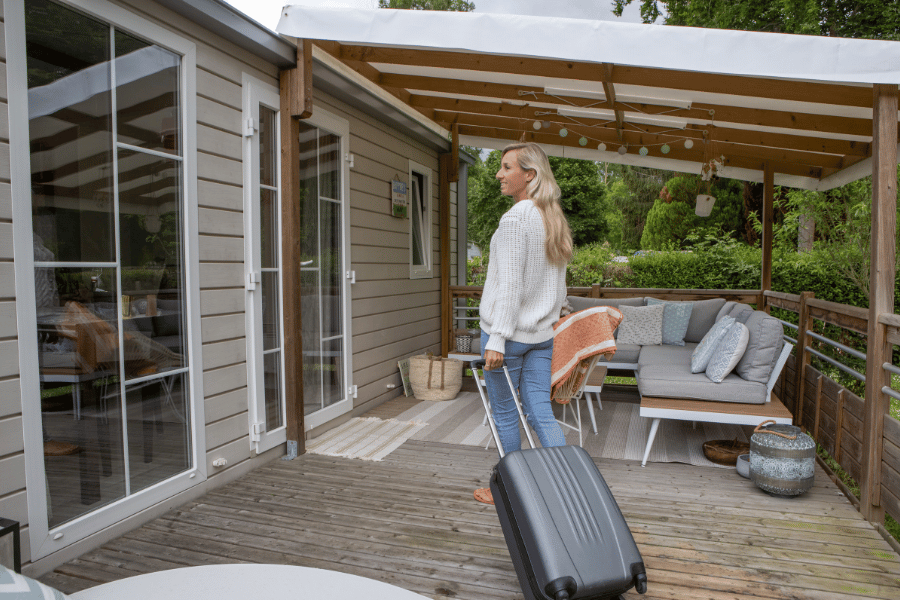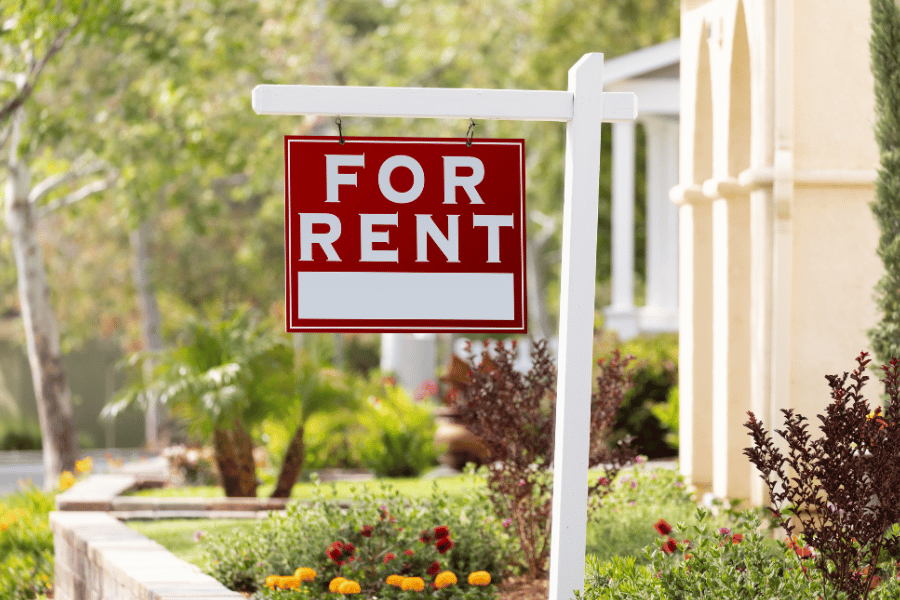10 Pros and Cons Of Renting Out Your Home's Extra Space
October 29th, 2024
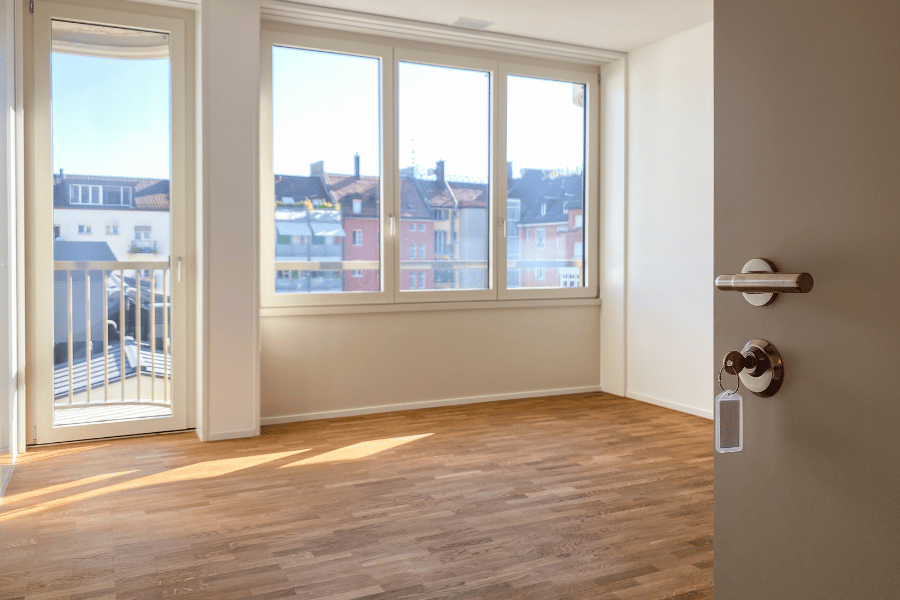
Pros and Cons of Renting Out Extra Space At Home
Are you considering renting out your home's extra space? Here are ten essential pros and cons of renting out a room at home.
Today, many homeowners rent out spare rooms in their homes to earn extra income and reduce a portion of their monthly mortgage payments. This is great for homeowners who live alone, and renting out a room is usually a cheaper option for renters.
If your home is in good condition, located in a nice neighborhood, and has extra space, there is no better way to earn passive income than by renting out a room. Passive income is usually earned by an investment you have already made; rental properties are a prime example.
While renting out extra space in your home offers many advantages, there are also numerous disadvantages to consider before listing your property on Airbnb or another rental website.
Check out these advantages and disadvantages of renting out your home's extra space
Chapters
1. Pro: Increased Income
Most homeowners rent out a spare room inside their homes to earn extra money. Homeownership is a long-term investment and is not cheap, so renting extra space is a great way to make ends meet with little effort.
Renting out a room can increase your monthly income and is a great way to pay off your mortgage, renovate your home, and save for future vacations or other daily expenses. If you have an extra room you are not using; there is no better way to earn passive income than by renting out a room on a property you already own.
Not only is this a creative way to earn money from an existing investment, but this increased income can also help you pay off your mortgage faster and further invest in other properties.
Depending on location and rental market conditions, short-term rentals can be highly profitable, while long-term rentals can provide a steady monthly income. Short-term rentals for part of your property through services such as Airbnb have the income potential of $100 to $300 per day, while long-term rentals have the income potential of $1,000 to $2,500 per month.
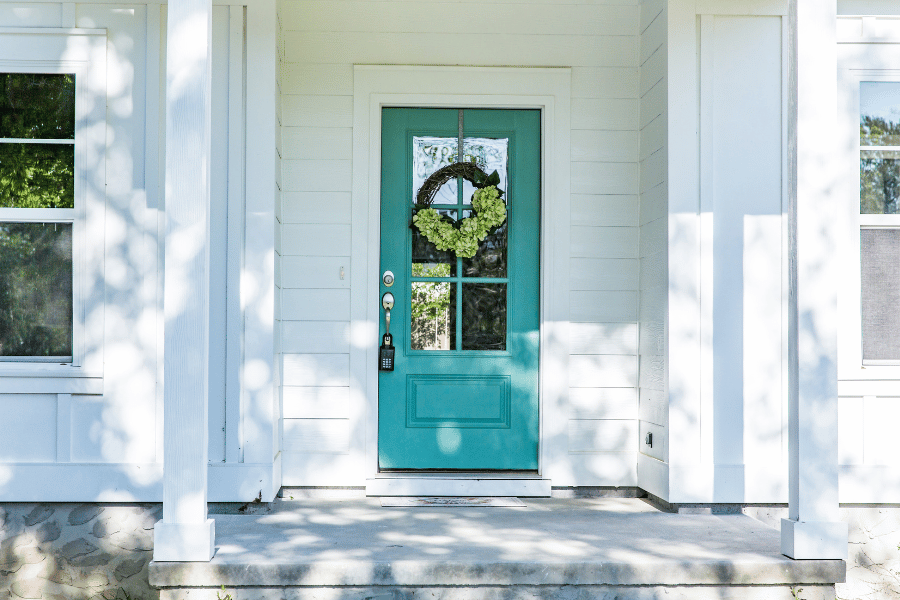
2. Pro: Tax Deductions
Renting out extra room in your home can be a very lucrative decision. It can also offer the potential for tax deductions like landlords who rent out their entire property get to deduct expenses from rental activity.
Certain rental expenses, such as mortgage interest, property tax, operating expenses, depreciation, and repairs, are ordinary and can be deducted on your tax return. The IRS also states that ordinary and necessary expenses, such as interest, taxes, advertising, maintenance, utilities, and insurance, can be deducted since they are needed for managing and maintaining your rental property.
While improvements can not be deducted, the cost of materials, supplies, repairs, and maintenance can be deducted to keep the property in good operating condition for current and future renters.
3. Pro: Personalized Lease Agreements
A room rental agreement is a legal contract between a landlord and a tenant or, in this case, a lodger. This legally binding document outlines the responsibilities of the landlord and the tenant and covers the specific room within a property to be rented during a certain period.
Different from a standard residential lease agreement, a room rental agreement only covers the rent of a particular room and is used to protect the rights of the tenant and the landlord.
Lease agreements help avoid conflicts, outline rental costs and security deposits, and confirm details such as length of stay. To meet the needs of both the landlord and the tenant, lease agreements can be personalized, with terms and rules that can be customized.

4. Pro: Rentals Fill Up Fast
When the extra space in your home is always rented, you are guaranteed a constant stream of additional income. While the speed and frequency of your room rental depends on certain factors such as location, rent price, and amenities offered, room rentals can book up faster than entire properties due to affordability.
Individual room rentals are generally cheaper than renting an entire property and require less upkeep, meaning the turnaround time between tenants is quick. When you advertise extra space to rent, please charge an appropriate amount for the space, highlight the area's safety and access to public transportation, and consider offering high-end amenities such as free parking, pet-friendly amenities, or access to a swimming pool.
5. Con: Renters Might Not Leave
One of the main concerns about renting out extra space in your home is that a renter may choose to stay even after the rental term ends. Landlord-tenant rights vary by location, but in North Carolina, renters are only legally allowed to stay in a property after their rental term ends with the landlord's consent. This makes North Carolina a landlord-friendly state.
Landlords must always provide notice before terminating a tenancy, depending on the type of rental agreement. If a tenant chooses not to leave a property after their rental term, they can be forcibly evicted, and a landlord can file an eviction lawsuit.
Depending on the type of rental agreement, landlords must provide notice to renters as follows:
| Rental Type | Number of Days for Notice |
| Month to Month | Seven days Notice |
| Week to Week | Two days Notice |
| 12 Month | 30 days Notice |
*Data Sourced from the North Carolina General Assembly.
6. Con: Tenants May Damage Property
Another downside of renting is that a renter may always cause damage. Even though this violates a renter's rights, it can still occur frequently and is very disheartening to the landlord when it does.
Common damage caused by renters includes large holes or marks on the walls, floor stains, broken windows, damaged appliances and fixtures, cracked bathroom tiles, and doors ripped off hinges.
As a landlord, the best way to protect your property from potential damage is to collect a security deposit before a tenant moves in that can go towards repairing the damage. To go the extra mile, always perform background checks on renters and ask for references from previous landlords.
When outlining the rental agreement, include a section about damages to protect yourself and your property if a renter refuses to pay. Take pictures of all the damage so that it can be documented.
7. Con: Rental Income is Taxable
The extra income earned from renting out a part of your home is fantastic, but most of the time, the income earned will need to be reported on your tax return. According to the IRS, income earned and expenses from renting are claimed on Schedule E, a tax form to report income or loss from rental real estate, partnerships, royalties, trusts, estates, S Corporations, and residual interests.
First, consider the number of days rented, followed by the expenses for personal and rental use. Rent received for 14 days or less is not taxable, but rent received for 15 days or more is reported. Then, divide the mortgage interest, property taxes, and utilities to determine which expenses are part of the residence and which are part of the rental portion of the home.

8. Con: Less Privacy
Renting extra space in your home to a friend or family member is one thing, but renting it to a stranger is another. You are essentially gaining a roommate, and while renting out an extra room in your home has many advantages, you will have less privacy as a homeowner.
If you are renting out a room in your home, it is required by law that the renter has access to common areas such as the kitchen, living room, bathroom, and laundry room. While you do not necessarily need to become fast friends with your renter, being friendly and respectful towards one another is always a good idea.
9. Con: It Is Easy To Break Landlord-Tenant Law
Everyone is human, and accidents can occur. Unfortunately, legal accidents can happen frequently if a landlord is not careful. In North Carolina, there are many laws in place to protect both the landlord and the tenant, and it is up to the landlord to ensure that no laws are broken, even accidentally.
Common laws that might raise issues include not providing a safe living environment, unjustifiably raising the rent, discriminating against tenants based on race, ethnicity, sexual orientation, disability, gender, or familial status, and refusing a request for a service animal.

10. Con: Ongoing Maintenance and Repairs
If you constantly rent out a room in your home, it will require frequent maintenance and upkeep. The landlord is responsible for keeping the property in liveable condition and should conduct seasonal maintenance. All repair issues should be handled quickly to keep the space habitable and comfortable for the renter.
Renters experiencing problems should bring up maintenance issues such as plumbing, lighting, heating, ventilating, and air conditioning that they are experiencing to the landlord so that all issues are fixed promptly.
Before renting out extra space, a homeowner might also decide to remodel or complete home improvement projects to attract more renters and generate more income in the long run.
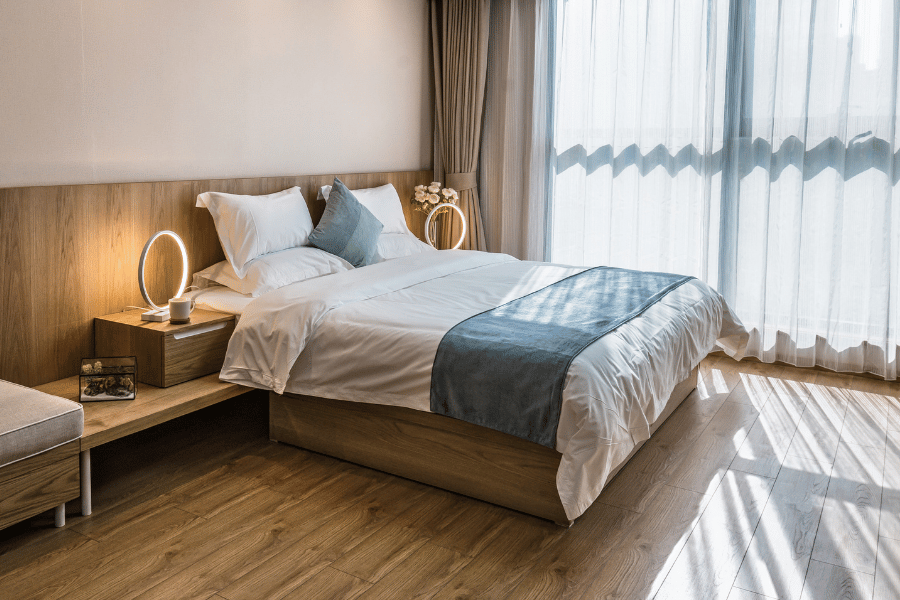
FAQs
What is it called when you rent out a room in your house?
When renting out a room in a house where you currently live to someone else, that person is considered a lodger rather than a tenant. A lodger is someone who pays money to live in someone else's home and shares a living space.
Can I put a room in my house on Airbnb?
Yes, you can list a room in your house on Airbnb as long as it follows municipal law, has access to a shared space, includes a description of the space with photos and house rules, and must be a bedroom with a door.
Is it better financially to rent or buy a house?
The decision to rent or buy a house depends on your lifestyle and financial goals. While renting requires less commitment and is generally cheaper than buying a home in the short term, homeownership is an excellent long-term investment.
Methodology
Data and information were sourced from the Internal Revenue Service, the North Carolina General Assembly, Investopedia, Merriam-Webster, and Free Tax USA to determine the pros and cons of renting extra space in your home.
Pros and Cons of Renting Out Your Home's Extra Space - Final Thoughts
As long as you follow landlord-tenant law and have a room rental agreement in place, renting out extra space in your home can have many benefits and provide you with financial freedom for the future.
The disadvantages associated with renting out extra space in your home, such as the possibility of renters causing property damage and renters not leaving after the end of the rental agreement, can seem scary, but the law is on your side.
The pros outweigh the cons in this case, and Raleigh is a great place to rent out extra space since North Carolina is generally considered a landlord-friendly state. If you live in the area or want to move to Raleigh, reach out to the Real Estate Specialists at Raleigh Realty. We are here to help and answer any questions.

Ryan Fitzgerald
Hi there! Nice to 'meet' you and thanks for visiting our Raleigh Real Estate Blog! My name is Ryan Fitzgerald, and I'm a REALTOR® in Raleigh-Durham, NC, the owner of Raleigh Realty. I work alongside some of the best Realtors in Raleigh. You can find more of my real estate content on Forbes, Wall Street Journal, U.S. News and more. Realtor Magazine named me a top 30 under 30 Realtor in the country (it was a long time ago haha). Any way, that's enough about me. I'd love to learn more about you if you'd like to connect with me on Facebook and Instagram or connect with our team at Raleigh Realty. Looking forward to connecting!
Related Blogs

